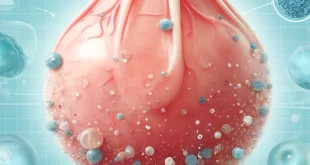A promising cancer treatment is set to change the face of traditional therapies. Imagine a future where cancer can be defeated without the need for invasive surgery, harsh chemotherapy, or the burdens of radiation therapy. This future seems within reach thanks to a groundbreaking development in immunotherapy. A phase II clinical trial has recently revealed astonishing results using a targeted treatment for advanced colorectal cancer.
Dostarlimab-gxly: A Breakthrough in Immunotherapy
The innovative treatment, known as dostarlimab-gxly, is a monoclonal antibody that targets a specific protein called PD-1 on immune cells. By blocking PD-1, the drug reactivates the immune system, allowing it to recognize and destroy cancer cells. This approach has shown great promise for patients with cancers that display a “deficiency in mismatch repair” (dMMR), which accounts for about 5 to 10% of colorectal cancers.
Complete Remission for All Treated Patients
The results of the clinical trial are unprecedented. Of the 42 patients with advanced rectal cancer, every single one achieved complete remission, with total tumor disappearance. Remarkably, this was accomplished without surgery, chemotherapy, or radiation, which are typically associated with significant side effects.
An Exceptional Safety Profile
In addition to its effectiveness, dostarlimab-gxly demonstrated an impressive safety profile. The reported side effects were generally mild to moderate, with no severe toxicity, a stark contrast to the debilitating effects of conventional cancer therapies.
Expanding Horizons for Other Cancers
Following this success, the pharmaceutical company GSK plans to extend trials to other types of colorectal cancers. If the results are confirmed on a larger scale, dostarlimab-gxly could become an effective, less burdensome alternative to existing treatments, offering immense hope to many cancer patients worldwide.
 Etudes Non Stop Study Non Stop
Etudes Non Stop Study Non Stop



